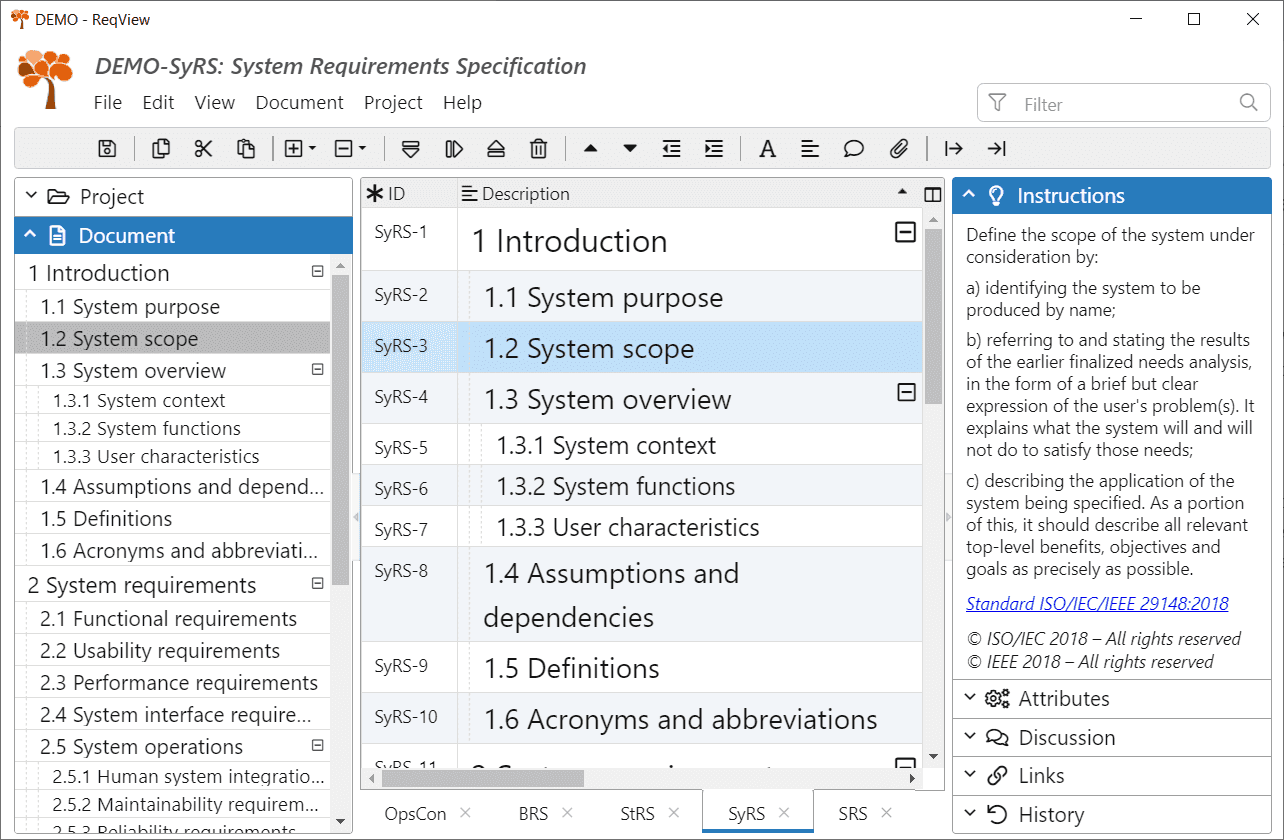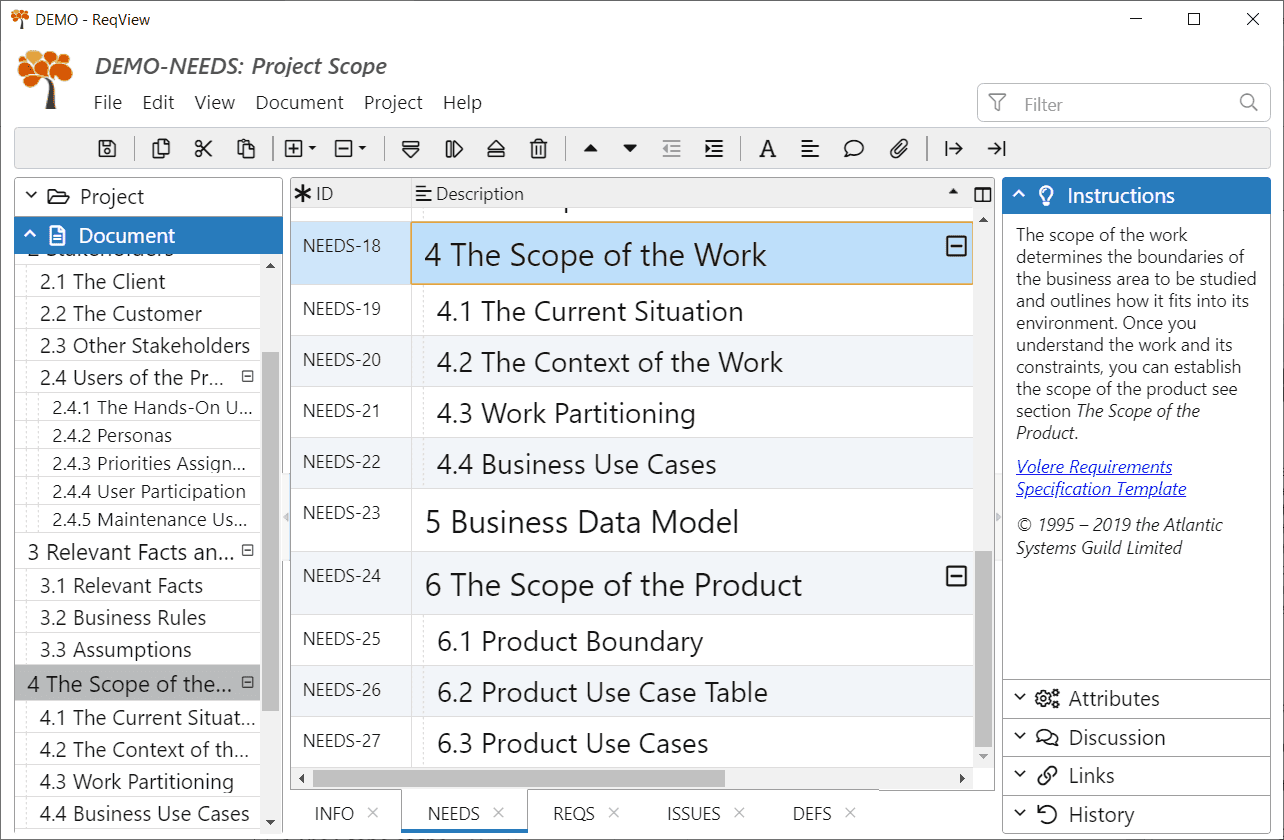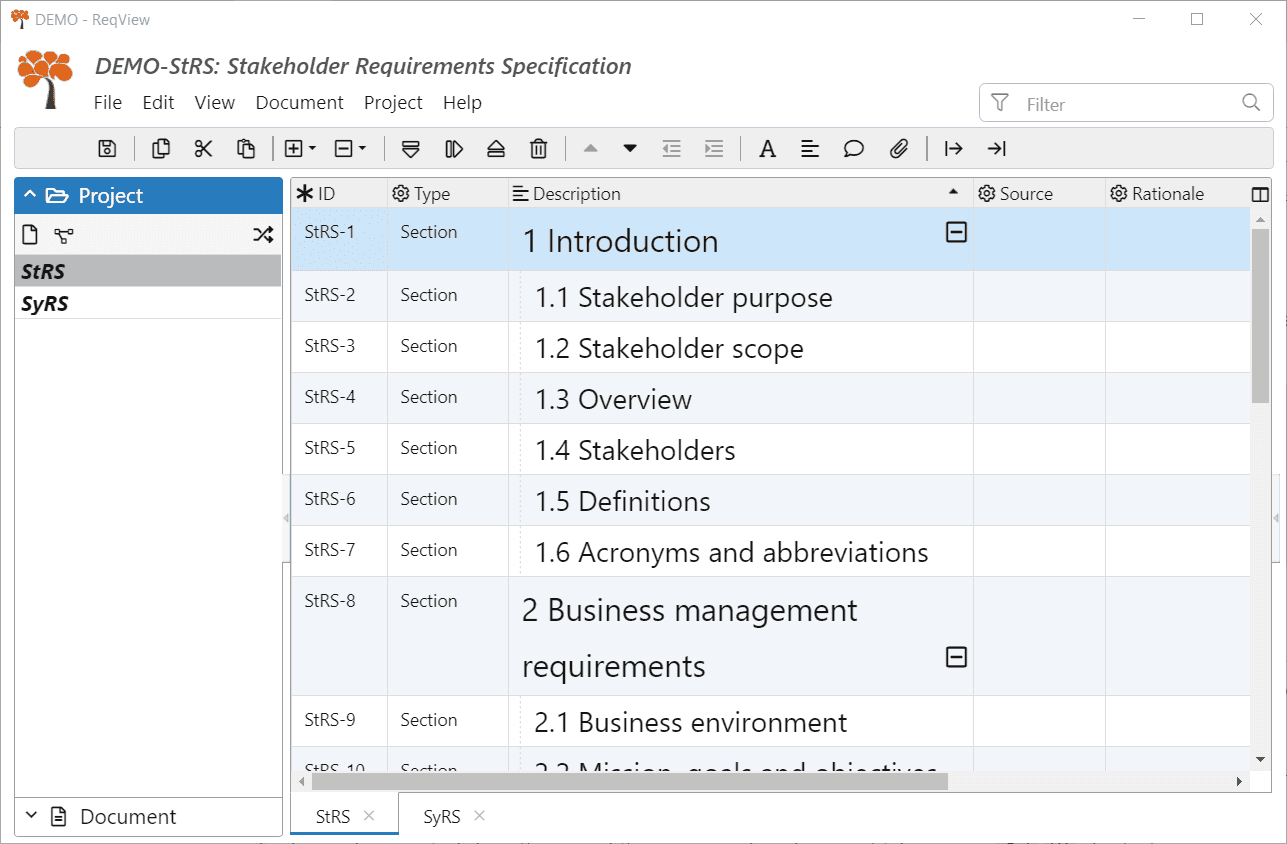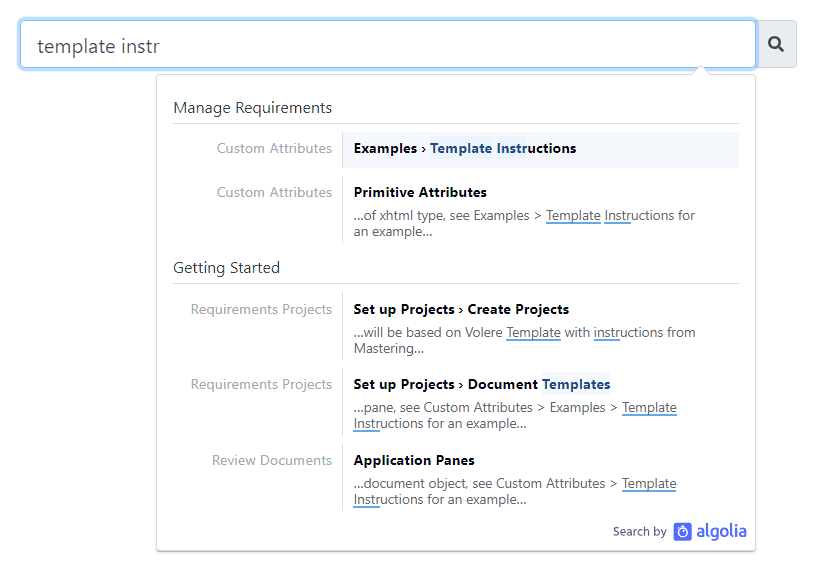ReqView 2.6 — New Requirements Specification Templates
We are excited to announce the release of ReqView 2.6.0 that introduces requirements specification templates with detailed instructions based on the ISO/IEC/IEEE 29148 standard and the Volere process.
Requirements Specification Templates
One of the main highlights of this release is improved guidance with setting up new requirements engineering projects. We are introducing new requirements specification templates with detailed instructions based on the ISO/IEC/IEEE 29148:2018 standard and the Volere process.
You can display template instructions in the Instructions right pane, which can be opened by CtrlAltI shortcut.
ISO/IEC/IEEE 29148 Templates
ISO/IEC/IEEE 29148:2018 — ISO/IEC/IEEE International Standard — Systems and software engineering — Life cycle processes — Requirements engineering is the latest international standard describing requirements engineering processes for development of software and system development products. It obsoletes the well known standard for software requirements specifications: IEEE 830-1998 — IEEE Recommended Practice for Software Requirements Specifications.
We implemented document templates for the following requirements specifications defined in the standard:
- Business Requirements Specification (BRS) — describing business or mission requirements,
- Stakeholder Requirements Specification (StRS) — describing stakeholder requirements,
- System Requirements Specification (SyRS) — describing system requirements,
- Software Requirements Specification (SRS) — describing software requirements, and
- System Operational Concept (OpsCon) — describing stakeholder needs.
If you create a new document based on one of these templates then the document is structured according to the standard and you can check detailed instructions in the Instructions pane:

The templates define a set of requirements attributes such as requirement source, rationale, priority, status, owner, difficulty and verification method.
Volere Template
Volere process is the result of many years of practice, consulting, and research in requirements engineering and business analysis of Atlantic Systems Guild Ltd. For more information check the Volere web site.
Volere requirements specification project consists of the following documents:
- NEEDS — describing purpose of the project, its stakeholders and their needs by means of business and product use cases,
- REQS — describing functional and non-functional requirements,
- ISSUES — describing open project issues, problems, tasks and risks, and
- DEFS — describing glossary and a formal data dictionary defining data inputs and outputs.
You can follow detailed instructions displayed in the Instructions right pane when you create a new project based on the Volere template:

Custom Template Instructions
You can define a custom document template with an xhtml custom attribute that stores instructions for the document template. Setting the help flag of the xhtml attribute to true makes the attribute read-only and displays its value in the Instructions pane on the right.
For instance, you can define instructions attribute as follows:
{ "instructions": { "name": "Instructions", "type": "xhtml", "help": true }}Project Pane
You can open and close document tabs and display the list of all documents in the Project pane, which can be opened by CtrlAltP shortcut.
To open a document, open the Project left pane and click on the desired document ID. The open document is displayed as a new tab placed at the bottom of the requirements table. You can change order of document tabs by drag & drop.

To open all documents in the current project, click Project and select Open All Documents or click the Open All Documents button displayed in the center pane under the “No document is open.” message.
To close a document, click on the icon of the corresponding document tab or press CtrlW shortcut.
Search Documentation
To search the online documentation, click Help, enter a keyword into Search Documentation text box in the menu and press Enter.

Array and Key-Value Map Template Helpers
We implemented the following template helpers allowing to use array and key-value map data structures:
- Key-value Maps Template Helpers —
map,getElement,setElement,deleteElement,clear,eachOfMapandsort - Arrays Template Helpers —
array,push,pop,getElement,setElement,deleteElement,clearandsort
For example, you can use key-value map helpers to list 3rd level requirements (e.g. software requirements) associated with the current 1st level requirement (e.g. a stakeholder need) while preventing duplicate entries.
Refer to Export Using Custom Templates > Template Helpers > Expressions Helpers > Arrays and Maps documentation section for more information.